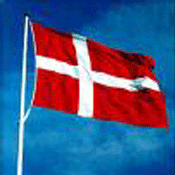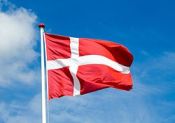Two Nordic pension funds have announced divestments from companies linked to Israel and the Occupied Palestinian Territories (OPT), including major online travel booking platforms and a defence technology supplier to the Israeli military.
Denmark’s Pædagogernes Pension has divested from the last three companies in its portfolio that have links to Israel and the Occupied Palestinian Territories (OPT) - Airbnb, Booking Holdings and Expedia Group – as it said the situation in the region has become “increasingly untenable”.
All three companies, the pension fund said, have room and apartment rentals in the OPT.
It comes amid mounting pressure on investors to divest from Israel and the OPT as the humanitarian crisis in Gaza and the West Bank deteriorates. For example, the Norwegian government has ordered a review of the Government Pension Fund Global’s Israeli investments.
Commenting on its latest divestment, Pædagogernes Pension CEO, Sune Schackenfeldt, said: "We see it as an obligation as a responsible investor and as a member of the UN Global Compact, which establishes a framework for responsible corporate behaviour. We cannot stand idly by while innocent children suffer from malnutrition and hunger.”
In doing so, the pension fund is aligning with the United Nations’ 2023 list of companies with business activities that the UN has identified as contributing to and supporting illegal Israeli settlements in the West Bank.
It follows a decision by a majority of the Danish Parliament in April 2025 to discourage activities and engagements that provide illegal settlements with enhanced economic opportunities. In a guide from the Ministry of Foreign Affairs' embassy in Israel, this also includes service industries such as tourism.
This latest divestment adds to Pædagogernes Pension’s existing ban on companies with arms and defence-related sales to Israel or other countries in war and conflict. It also boycotts banks, utilities and construction companies that are on the UN list of companies that support illegal settlements.
In a separate move, Norway’s KLP, including its funds, has excluded Israeli technology company NextVision Stabilized Systems Ltd from its investments as it discovered that the company supplies key components for military drones used in the Gaza war. KLP had a combined 11,867 shares in the company, worth approximately NOK 5m
KLP Kapitalforvaltning head of responsible investments, Kiran Aziz, said: “Last week, KLP became aware of information that NextVision manufactures cameras used in drones by the Israeli defence forces in the Gaza war.
“Based on this information, KLP has assessed the company and also attempted to enter into dialogue with it. Our conclusion is that NextVision violates our guidelines as a responsible investor and that we are therefore excluding it from our investments.”
NextVision, which manufactures cameras used in military drones, has had an increased turnover since the outbreak of war in October 2023. KLP said it is one of the most important suppliers to the IDF.
"Our assessment is based on publicly available information. Companies that sell goods to customers involved in a war with documented violations of international law's requirements for the protection of civilians must exercise particular caution in accordance with international guidelines.
“Due diligence assessments must include mapping how the goods are used and measures to prevent complicity in violations of norms. The company does not publish information about its due diligence assessments, and KLP has not received a response to its enquiries,” Aziz said.
Latest News
-
Spanish pension plan assets rise by €916m in January
-
Sweden’s AP4 yields 6.3% return for 2025
-
News in brief: 20 February
-
Black Arrow Group pension scheme completes £7m buy-in with PIC
-
Dutch pension funds report improved January funding positions
-
Finland’s Ilmarinen makes work ability management key part of sustainability work
Podcast: Stepping up to the challenge

In the latest European Pensions podcast, Natalie Tuck talks to PensionsEurope chair, Jerry Moriarty, about his new role and the European pension policy agenda
Podcast: The benefits of private equity in pension fund portfolios

The outbreak of the Covid-19 pandemic, in which stock markets have seen increased volatility, combined with global low interest rates has led to alternative asset classes rising in popularity. Private equity is one of the top runners in this category, and for good reason.
In this podcast, Munich Private Equity Partners Managing Director, Christopher Bär, chats to European Pensions Editor, Natalie Tuck, about the benefits private equity investments can bring to pension fund portfolios and the best approach to take.
In this podcast, Munich Private Equity Partners Managing Director, Christopher Bär, chats to European Pensions Editor, Natalie Tuck, about the benefits private equity investments can bring to pension fund portfolios and the best approach to take.
Mitigating risk
BNP Paribas Asset Management’s head of pension solutions, Julien Halfon, discusses equity hedging with Laura Blows
© 2019 Perspective Publishing Privacy & Cookies







Recent Stories